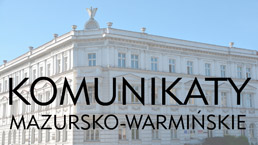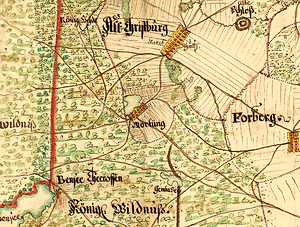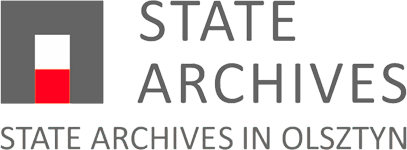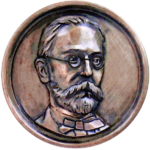Current issue
Online first
Special issues
Archive
About the Journal
Editorial Board
Editorial Council
Reviewers
Editorial guidelines
Publication ethics
Guidelines for reviewing
Remarks on “ghostwriting”
Copyrights and Open Access rule
GDPR Privacy Notice – for the authors of articles sent for publication in the "Komunikaty Mazursko-Warmińskie ("Masuro-Warmian Bulletin")
Contact
Price list
New Source for the Location of the Manor of Teutonic Order Officials in Mortąg
1
Instytut Północny im. Wojciecha Kętrzyńskiego w Olsztynie, Polska
2
Independent Researcher, Germany
Submission date: 2022-02-15
Final revision date: 2022-03-16
Acceptance date: 2022-03-19
Online publication date: 2022-04-26
Publication date: 2022-04-29
Corresponding author
KMW 2022;316(1):146-163
KEYWORDS
archival archaeologyTeutonic Orderheadquarters of officialsfolwarksthe office of Conservationist of Heritage and History of East Prussia
TOPICS
ABSTRACT
Mortąg (former Mortung), is presently a village situated in the county of Sztum (Pomeranian Voivodeship) mentioned in sources for the first time in 1312. In the 14th century the seat of the Teutonic Procurator (Pfleger / provisor) and later of the Master of Fishery (Fischmeister) is connected with Mortag. Teutonic officials are confirmed in Mortąg until 1455. There was also a manor farm (folwark) adjacent to the officials' manor in Mortag; the villages of Stary Dzierzgoń (Alt Christburg), Monasterzysko (Munsterberg) and the estate and manor of Matule (Mothalen) were also subject to the procurators and masters of fishery. In this article the authors, on the basis of the preserved sources, indicate the potential location of the Teutonic Knights' buildings connected with the manor and/or folwark functioning here.
REFERENCES (22)
1.
Biskup Marian, Powinności pańszczyźniane chłopów czynszowych w Prusach Krzyżackich w pierwszej połowie XV wieku, Przegląd Historyczny 1962, t. 53, z. 3.
2.
Boetticher Adolf, Die Bau– und Kunstdenkmäler der Provinz Ostpreußen, Heft III: Das Oberland, Königsberg 1898.
3.
Delestowicz Norbert, Bracia zakonu krzyżackiego w Prusach (1310–1351). Studium prozopograficzne, Kraków 2021.
4.
Gerullis Georg, Die altpreußischen Ortsnamen gesammelt und sprachlich behandelt, Berlin u. Leipzig 1922.
5.
Heckmann Dieter, Amtsträger des Deutschen Ordens. Dostojnicy zakonu niemieckiego, Toruń 2020.
6.
Herrmann Christopher, Mittelalterliche Architektur im Preussenland. Untersuchungen zur Frage der Kunstlandschaft und– Geographie, Petersberg 2007.
7.
Jóźwiak Sławomir, Centralne i terytorialne organy władzy zakonu krzyżackiego w Prusach w latach 1228–1410. Rozwój – Przekształcenia – Kompetencje, Toruń 2001.
8.
Knyżewski Marcel, Siedziby średnich i niższych rangą urzędników krzyżackich na terenie dzisiejszej Polski. Studium archeologiczne, Łódź 2020.
10.
Martens Jürgen, Die ländliche Gartensiedlung im mittelalterlichen Preussen, Lüneburg 1997.
11.
Maschke Erich, Die Schäffer und Lieger des Deutschen Ordens in Preußen, Hamburger Mittel- und Ostdeutschen Forschungen, T. 2, Hamburg 1960.
12.
Mülverstedt von Georg Adalbert, Die Beamten und Konventsmitglieder in den Verwaltungsbezirken des Deutschen Ordens innerhalb des Oberländischen Kreises, Oberländische Geschichtsblätter, Heft II, Königsberg 1900.
13.
Przybytek Rozalia, Ortsnamen baltischer Herkunft im südlichen Teil Ostpreußens (Nazwy miejscowe bałtyckiego pochodzenia w południowiej części Prus Wschodnich), Stuttgart 1993.
14.
Rieckenberg Heinrich, Die Schatullsiedlung in Preussen bis zum Jahre 1714 (I), Altpreussische Forschungen 1939, 16 Jg.
15.
Sarnovsky Jürgen, Die Wirtschaftsführung des Deutschen Ordens in Preußen (1382–1454), Köln–Wien 1993.
16.
Semrau Arthur, Die Siedlungen im Kammeramt Preuszischmarkt (Komturei Christburg) im Mittelalter, Mitteilungen des Coppernicus–Vereins für Wissenschaft und Kunst zu Thorn, Heft 40, 1932.
17.
Szczepański Seweryn, Osadnictwo średniowieczne wokół Starego Dzierzgonia, w: Wielokulturowy obiekt warowny na Górze zamkowej oraz gród cyplowy w Starym Dzierzgoniu. Studia i materiały, red. D. Gazda, Warszawa 2018.
18.
Tandecki Janusz, Podziały administracyjne państwa zakonnego w Prusach, w: Zakon krzyżacki w Prusach i Inflantach. Podziały administracyjne i kościelne w XIII–XVI wieku, red. R. Czaja, A. Radzimiński, Toruń 2013.
19.
Thielen Peter G., Die Verwaltung des Ordensstaates Preußen vornehmlich im 15. Jahrhundert, Köln–Graz 1965.
20.
Wasik Bogusz, Budownictwo zamkowe na ziemi chełmińskiej od XIII do XV wieku, Toruń 2016.
21.
Weber Lothar, Preussen vor 500 Jahren in culturhistoricher, statistischer, und militärischer Beziehung nebst Special–Geographie, Danzig 1878.
22.
Wunder Heide, Siedlungs- und Bevölkerungsgeschichte der Komturei Christburg (13.–16. Jhdt.), Wiesbaden 1968.
Share
RELATED ARTICLE
We process personal data collected when visiting the website. The function of obtaining information about users and their behavior is carried out by voluntarily entered information in forms and saving cookies in end devices. Data, including cookies, are used to provide services, improve the user experience and to analyze the traffic in accordance with the Privacy policy. Data are also collected and processed by Google Analytics tool (more).
You can change cookies settings in your browser. Restricted use of cookies in the browser configuration may affect some functionalities of the website.
You can change cookies settings in your browser. Restricted use of cookies in the browser configuration may affect some functionalities of the website.





